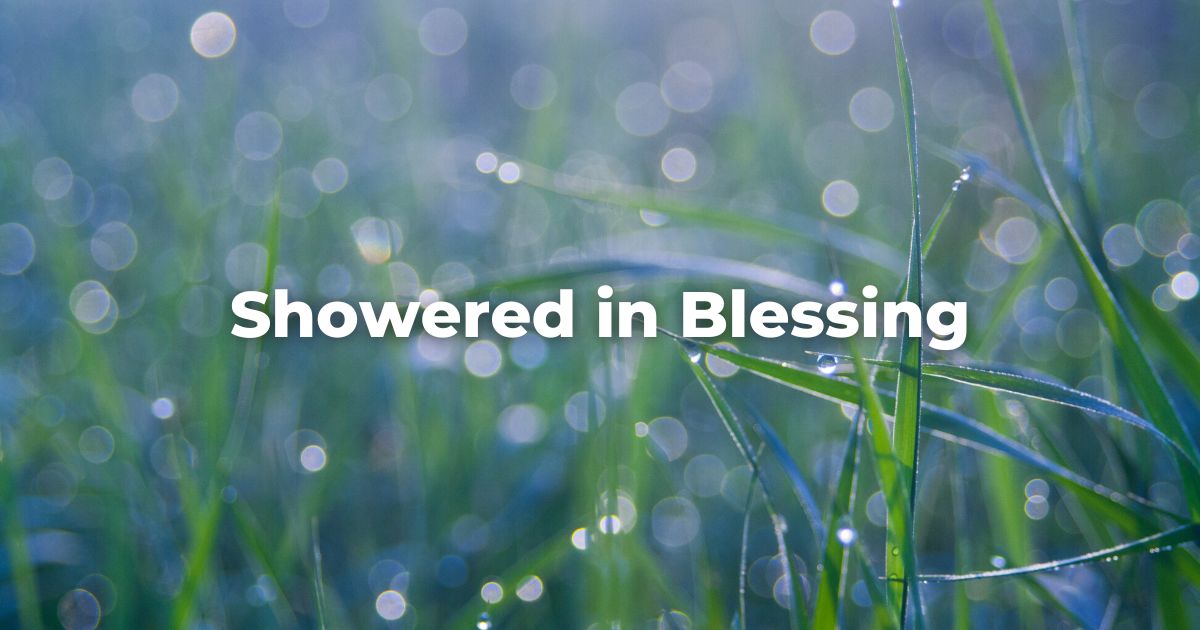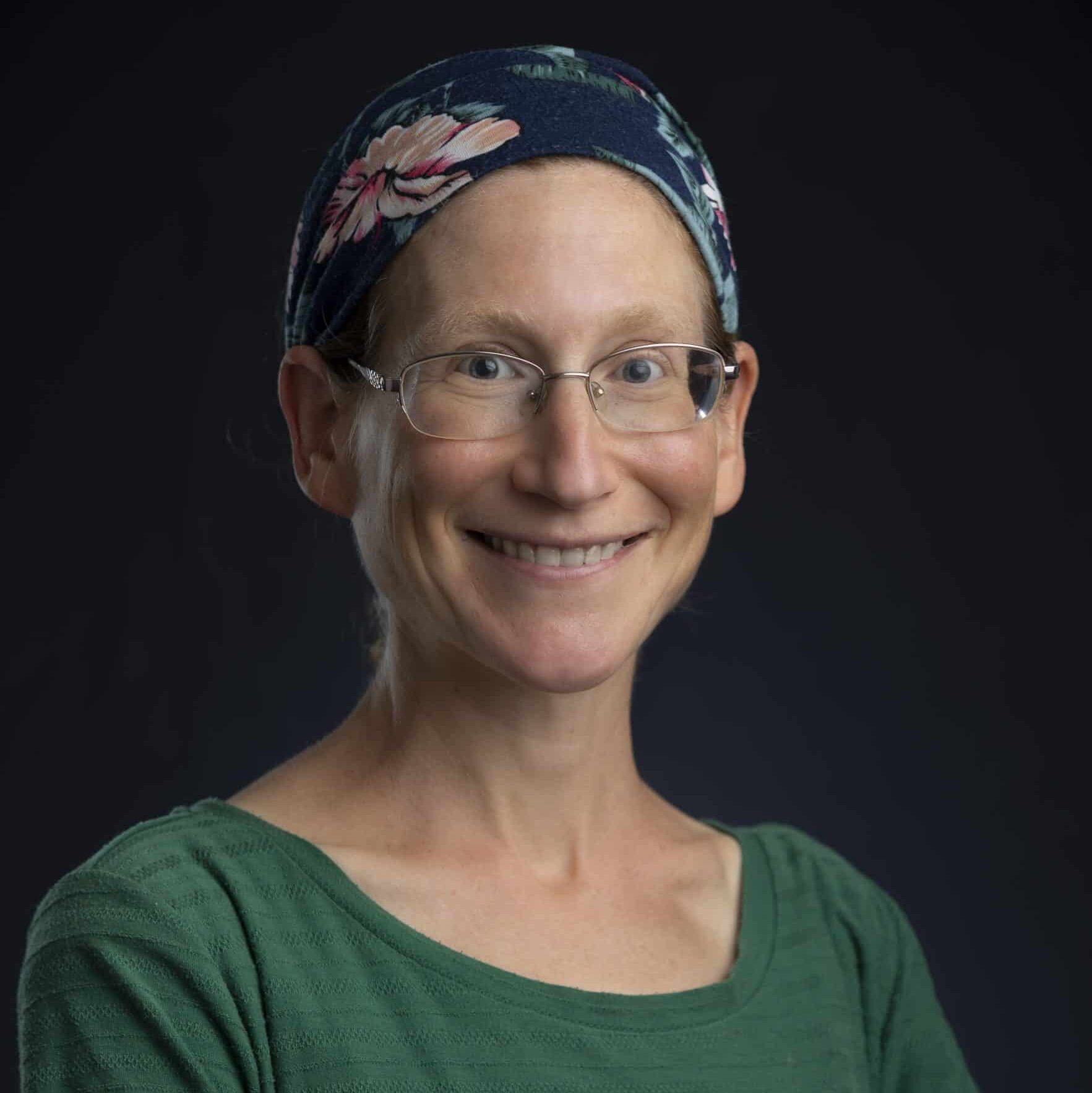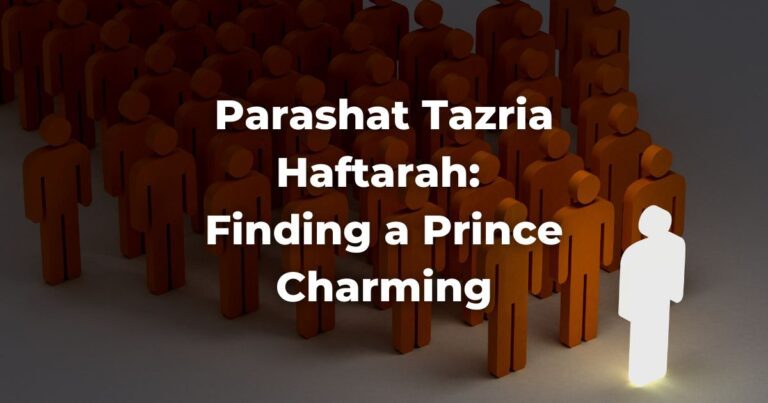Parashat Bechukotai consists primarily of a litany of blessings and curses that will befall the Jewish people depending on whether or not we obey God.
The blessings and curses found in this parashah
The curses are quite long and graphic, consisting of thirty-one biblical verses about all the calamities that will befall us if we fail to heed God’s word. In contrast, the blessings occupy a mere eleven verses and are focused primarily on agricultural bounty.
The opening of our parashah, which begins with the blessings, offers us a window into the one promise that encapsulates the essence of nearly all the blessings and curses that follow: “If you follow My laws and faithfully observe My commandments, I will grant your rains in their season” (Leviticus 26:3-4).
A close analysis of the verses about divine reward and retribution reinforces the notion that according to biblical theology—and as expanded upon by the Talmudic sages—our relationship with God is mediated through rainfall, which serves as a physical and spiritual link between heaven and earth.
Rain showers and agriculture
Rain is depicted in our parashah as the source of all blessing, and drought as the ultimate curse. If we follow God’s laws and the rain falls, then the earth will yield its produce and the trees will yield their fruit (Leviticus 26:4).
If the earth and trees yield a bountiful harvest, then we will have plenty of grain to eat (Leviticus 26:5).
And if there is enough grain, then we will eat our fill of bread with our stomachs satiated and our minds at peace, such that we will dwell securely in the land (Leviticus 26:5) and no enemies or vicious beasts will trouble us (Leviticus 26:6).
On the other hand, if we do not obey God’s commandments (Leviticus 26:14) then God will make the skies impermeable like iron (Leviticus 26:19) so that we will toil and work the earth to no avail (Leviticus 26:20), as the land will not yield its produce nor the trees yield their fruit (Leviticus 26:20).
Ten women will have to bake their bread in a single oven, and the bread they bake will not satisfy or satiate (Leviticus 26:26).
Lacking any harvest to feast off, we will have to resort to eating the flesh of our own children (Leviticus 26:29).
We will abandon the land, which will be left desolate, and we will be scattered among the nations (Leviticus 26:33). According to biblical theology, then, rain sets off a chain of blessings, just as the lack of rain sets off a chain of curses.
Not all rain showers are good
But as we know all too well on our own day, not all rainfall is good.
The TorahRefers to the first five books of the Hebrew Bible, the Tanakh, also called the Five Books of Moses, Pentateuch or the Hebrew equivalent, Humash. This is also called the Written Torah. The term may also refer to teachings that expound on Jewish tradition. Read more teaches that if we obey God’s word, “I will grant rains in their season” (Leviticus 26:4), a reminder that to everything there is a season. As we learn in tractate Taanit (2a), we begin praying for rain on Shemini Atzeret at the end of the Sukkot holiday, because that is the proper season for rain; if it rains earlier, it is regarded as a curse, as it would interfere with the pilgrimage festival of Sukkot and the commandment to dwell outdoors in a Sukkah.
The second paragraph of the Shema (Deuteronomy 11:14) speaks of the yoreh—the first rain, which falls just after Sukkot—and the malkosh—the last rain of the season, which is supposed to fall just before we stop praying for rain on Pesach.
According to this rabbinic understanding, the year can thus be divided in half—there is the dry summer from Nisan to Tishrei, which includes the entire cycle of biblical festivals (Pesach, Shavuot and Sukkot), in which we celebrate God’s historical involvement in the Exodus, the revelation, and the miracles of the wilderness journey.
And then there is the wet season from Heshvan to Adar, in which the rabbis understand that we might experience God’s involvement in human affairs not through history but through nature—through the rain that falls abundantly in the land of Israel, so long as we obey God’s word.
When rain doesn’t fall
When the rain fails to fall during the winter months, the rabbis devised an elaborate system of fasts of increasing severity, in which we entreat God to heed our prayers and bring the rain.
The first and second chapters of tractate Taanit explain how these fasts were structured: If it still hadn’t rained by the seventeenth of Heshvan, the elders would fast for three days (Monday, Thursday, Monday).
This cycle of three fasts would be repeated starting on the first of Kislev if the rains still hadn’t fallen, followed by a series of another three fasts and then seven fasts—each incumbent upon more members of the community and each involving increasingly severe restrictions.
During the later fasts for rain, the people would engage in mourning practices—they would wear ashes on their foreheads, desist from all unnecessary business transactions, and hold off on betrothals and weddings. The ark with the Torah scroll would be brought into the city square and covered with ashes as well, and the people would pray, “He who answered Abraham on Mount Moriah, He will answer you… He who answered our forefathers at the Red Sea, He will answer you…. He who answered Joshua at the Gilgal, He will answer you….”
Rabbi Dov Berkowitz (in HaDaf HaKiyumi, 2013, Hebrew) notes that the word used for Taanit (fast) is related to the word used for Ya’anenu (He will answer you), suggesting that fasting in time of drought is primarily about seeking to open the channel of communication between human beings and God at a time when the heavens are impermeable to rain—and also, seemingly, to a divine response.
In our modern world we can appreciate that in order to keep the channel of communication open between humans and God, we must also do our part to protect God’s world.
When we pray for rain on Shemini Atzeret, we ask God that it should be “for a blessing and not for a curse.” Our prayers express our hope that God will be invested in human affairs, perhaps by inspiring humanity to take better care of our planet so that the rain might indeed fall in its proper time.
As we read in our parashah, we aspire to live in a world in which God is “ever present in our midst”—such that even when God’s face is hidden, we might nevertheless be showered in blessing.
See more: Parashat Bechukotai
Originally posted as part of the Conservative Yeshiva at the Fuchsberg Jerusalem Center’s Torah Sparks. Support Torah learning from the Fuchsberg Jerusalem Center/Conservative Yeshiva for leaders and seekers around the world here.
Authors
-

Ilana Kurshan teaches TalmudReferring to one of two collections, the Jerusalem and Babylonian Talmuds, edited in the 6th century, that contains hundreds of years of commentary, discussion, and exploration of the ideas in the Mishnah. One could describe it as Mishnah + Gemara = Talmud Read more at the CY. She is the author of If All the Seas Were Ink (St. Martin’s Press, 2017) and Why is This Night Different From All Other Nights (Schocken, 2005). She has a degree in History of Science from Harvard and in English literature from Cambridge, and has worked in literary publishing both in New York and in Jerusalem – as a translator, a foreign rights agent, and as the Books Editor of Lilith Magazine. Since October 2020, Ilana has been a regular contributor to Torah Sparks, FJC’s weekly parashat hashavuah blog.
View all posts -



The Fuchsberg Jerusalem Center (FJC) is a home in the heart of Jerusalem where leaders and seekers can find an authentic place in Jewish tradition to call their own. FJC offers opportunities to study, pray and explore within an egalitarian and inclusive setting, creating multiple pathways for finding personal and communal meaning.
View all posts






